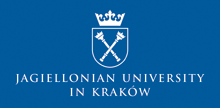Speaker
Description
The work is dedicated to the development of the new free RTPS (the Radiation Therapy Planning System), the using GPU hardware and Artificial Intelligence algorithms for dose calculation. The semi-empirical algorithms and Monte Carlo methods are applied to obtain balance between of speed and precision of work. Free RTPS systems are effective not only for training students and medical physicists, but also for increasing the reliability of the dose calculations in the radiation oncology, quality control of dose delivery, development of new types of radiation therapy such as proton therapy and therapy using carbon ions. We use the modern graphical interface, convenient and habitual for medical physicists, written on the C++ and Python.
Over the last decade we are observing a technological revolution in radiation oncology. Enhanced use of imaging techniques combined with computer-controlled methods of dose delivery aims at escalating effective dose values deposited in tumors without increasing the morbidity and tissue complications. A pivotal tool for these irradiation approaches is the computerized radiation treatment planning system (RTPS) which is used to develop optimal treatment techniques for individual patients. Modern RTPSs make increased use of patient images, possibly from various imaging modalities, enhanced 3-D displays, sophisticated dose-calculation algorithms, complex treatment plan evaluation tools, visualized and validated by a comprehensive set of the generated images. Implementation of intensity-modulated radiation therapy (IMRT) added a further complexity to the RTPS. RTPSs are used in external beam radiation therapy (and brachytherapy) to generate beam profiles (or positioning of the sources) and dose distributions, maximizing tumor control and minimizing normal tissue complications. Enhanced modern RTPSs have to serve as an essential education tool for students of specialties related to using of ionizing radiation in medicine and for training of medical physics personnel. Alternative RTPS are indispensable to provide an independent calculation path to estimate the dose obtained by patient as required by regulation documents.
Unfortunately, as a rule RTPSs are provided only as a complement to the purchased radiation-therapy equipment, which makes it inconvenient, expensive and often impossible to use such RTPS for training and education of personnel and students as well as for independent checks. Therefore, development of RTPS, independent on a specific vendor of the equipment for radiation therapy, potentially using an open source approach, is essential for improving the level of training and education as well as the quality standards in radiation therapy in Ukraine and in other countries. The proposed development of the open source RTPS will employ modern algorithms and approaches, possibly best available open algorithms from commercial software, forward and inverse planning, semi empirical and Monte Carlo methods, techniques of parallelizing for effective calculations.

